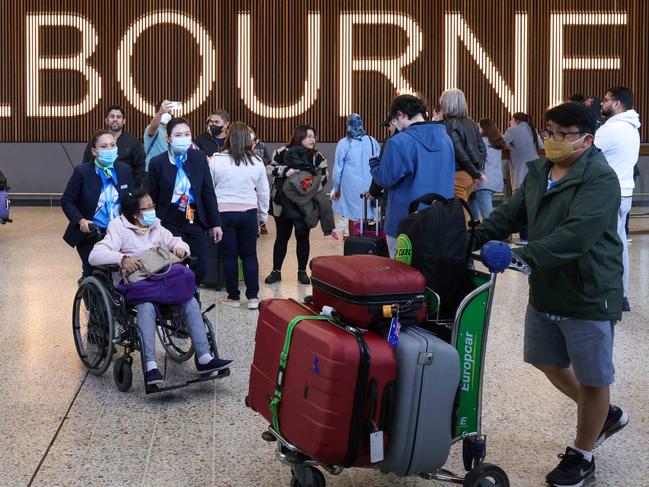Panahi: Albanese-government’s record immigration perfect storm of ineptitude and poor planning
If the nation was ever given a referendum on the Big Australia strategy — driven by a perfect storm of ineptitude and poor planning — the result would make the failed Voice look popular.
Opinion
Don't miss out on the headlines from Opinion. Followed categories will be added to My News.
The Albanese government’s record immigration intake is proving to be hugely unpopular with the majority of Australians, according to the latest data released this week by the Australian Population Research Institute (TAPRI).
Seventy-one per cent of voters say we do not need more people, with one in two wanting “drastic” cuts to immigration levels.
If we had a referendum on the Big Australia strategy, it would make the failed Voice look popular.
Net migration added around 550,000 to the population last year, adding pressure on housing, hospitals, roads and other vital resources and infrastructure.
The population surge coincided with Australia recording its lowest housing approval rate in 12 years.
It’s a perfect storm of ineptitude and poor planning. And the records don’t stop there.

According to the government’s own data, there are more than 713,000 international students in Australia, breaking last year’s record number of 664,178, and adding to the record high 2.8 million temporary entrants in the country.
TAPRI’s national survey also revealed that more than 70 per cent of Australians believe that the increasing population is helping push up housing prices – the rest presumably failed Economics 101.
It would be one thing if the boost in numbers corresponded with the cutting of red, green and black tape that is holding back development, and pushing up the cost of projects that make it through the bureaucratic quagmire, but the opposite is true.
Other revelations from TAPRI’s data include that one in two Australians see themselves as financially insecure, or just barely surviving financially, and only 14 per cent say they are living comfortably.
Also concerning is the number of young Australians who lack connection to their homeland.
The self-loathing, anti-Australia and anti-Western civilisation sentiment that has for decades been fed to kids, from kinder to university, is having a profound impact.
While older Australians expressed a deep connection with Australia, with 77 per cent of 60 to 74-year-olds saying they felt to “a great extent” a sense of belonging to the country, that number plummeted to just 32 per cent for 18 to 29-year-olds.
It should trouble any responsible government that two in three under 30s don’t feel that connection, allegiance or sense of pride in their own country.
It’s not hard to understand why when even the leadership of this country seems to be ashamed of our national day and insists on appearing in front of three flags, not just the one that represents us all.




